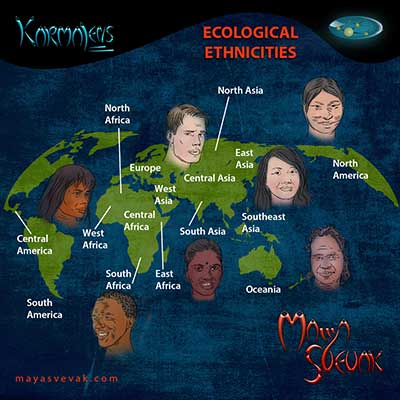When people tell me they don’t believe in science, I ask them if they believe that the sun rises in the east. I have never been able to reconcile the juxtaposition of` the word ‘belief’ with science. One of the dictionary definitions of ‘belief’ is ‘confidence in the truth or existence of something not immediately susceptible to rigorous proof.’ A definition of ‘science’ on the other hand is ‘systematic knowledge of the physical or material world gained through observation and experimentation.’ And that’s precisely what puzzles me. Much science is based on immediately observable facts, facts that can be ascertained either through our senses directly, such as the sun rising in the east, or indirectly through instruments, such as a sonar detecting peaks and troughs in the ocean floor. So then how does the matter of belief even factor into any discussion of science?
This is not merely idle metaphysical contemplation. No, this has real-world implications. People thinking that they can choose to believe or not believe scientific facts actively harm the interconnected wellbeing of others, both human and non-human, animal and plant, animate and inanimate.
How? In many ways.
There are people who don’t believe the science of genetics, which has found no correlation between ancestral origin or ethnicity and intelligence or criminality. And yet, just recently, a highly educated man of European descent told me matter-of-factly that “black people are less intelligent than white people and tend to be more inclined to engage in criminal behavior.” When I informed this man that there were simply no data supporting his assertion, he responded, “I don’t believe in science, I believe in what I know.” A ridiculously inaccurate statement because knowledge is based on facts, not beliefs.
There are people who don’t believe in the scientific fact that highly infectious viruses, such as the coronavirus, can be transmitted from person to person merely if they stand in proximity to each other, let alone if they engage in physical contact. Such beliefs are aggravating the current global pandemic because people are thwarting social distancing and mask-wearing guidelines, which will potentially result in the deaths of millions of people.
And how can one forget the climate deniers, people who don’t believe in the science that man-made consumer behaviors have resulted in the global warming of our planet? Or people who don’t believe the predictions made by scientific data that unchecked pollution will devastate the earth? The actions of such people not only harm other human beings, but all living species on earth. Consuming increasing amounts of single-use plastic, creating mountains of garbage, and using unnecessarily large amounts of water and energy will annihilate all life on earth within a few centuries at the most.
It’s time that people stop telling themselves that acknowledging the truth of science is optional.

















